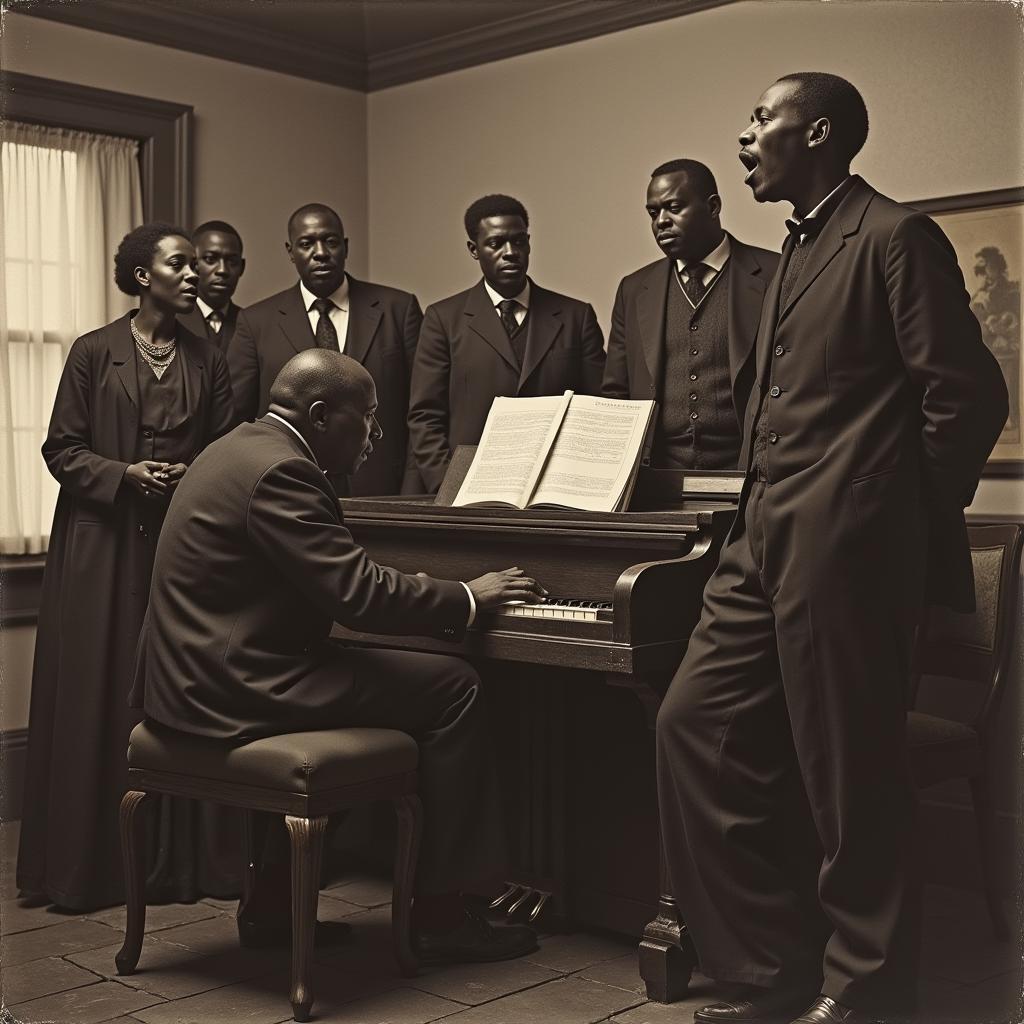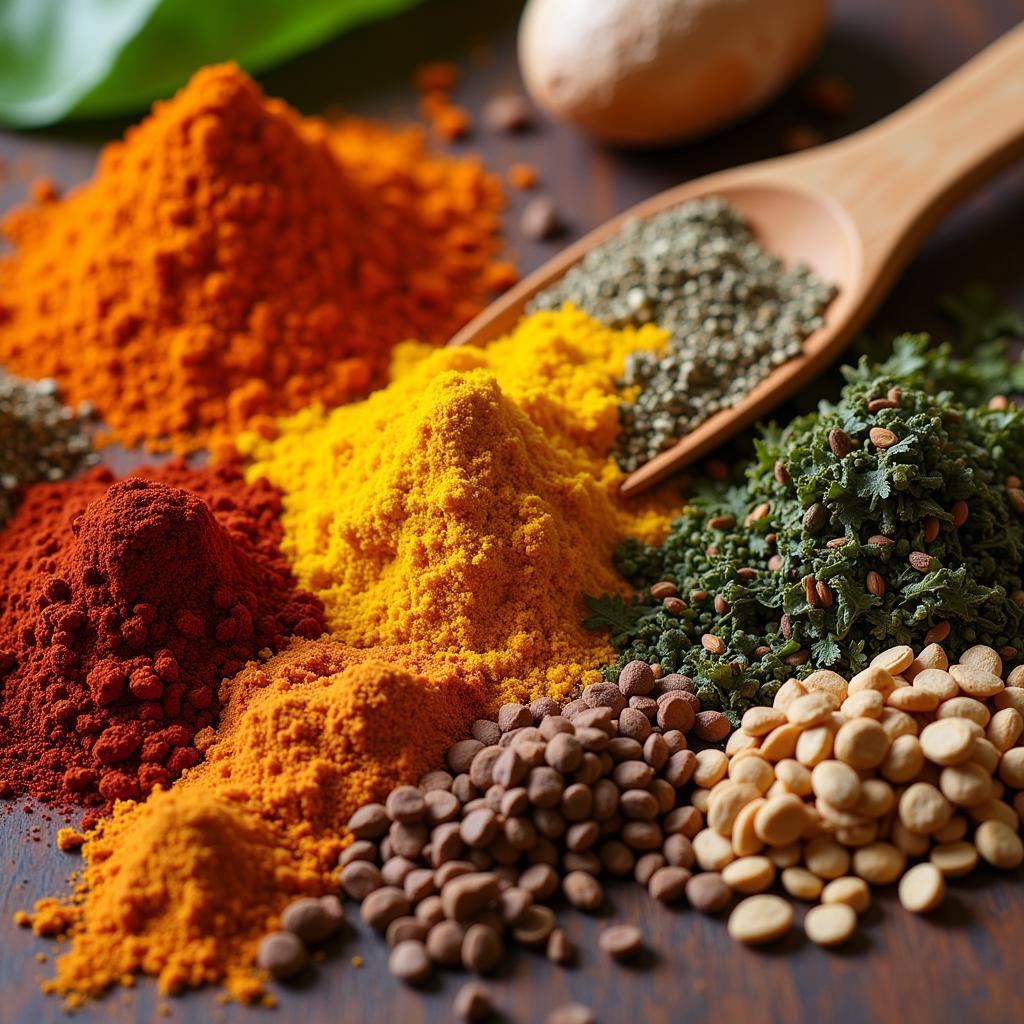African American Culture in the 1970s: A Decade of Transformation
The 1970s marked a pivotal period for African American culture, witnessing a significant shift from the Civil Rights Movement of the previous decade to an era of self-discovery and cultural affirmation often referred to as the “Black Power Movement.” This period, marked by significant social, political, and artistic advancements, profoundly shaped the identity of African Americans and continues to resonate in contemporary culture. African American Culture In The 1970s was a dynamic tapestry woven with threads of resilience, creativity, and a powerful yearning for change.
The Rise of Black Arts and Cultural Expression
The 1970s saw a flourishing of Black artistic expression in literature, music, and visual arts. This cultural renaissance was fueled by a desire to reclaim and celebrate Black identity and heritage. The Black Arts Movement, born in the 1960s, reached its peak in the ’70s, giving voice to the struggles and triumphs of African Americans. Writers like Toni Morrison and Ishmael Reed explored complex themes of identity, racism, and the Black experience. African jumpsuit designs began to gain popularity, reflecting a growing interest in African heritage.
This period also witnessed the emergence of powerful voices in music. Funk, soul, and R&B reached new heights with artists like Parliament, Earth, Wind & Fire, and Stevie Wonder. Their music became anthems of Black pride and self-love, resonating with audiences across the globe. The development of hip-hop in the latter half of the decade laid the foundation for a genre that would become a global phenomenon.
Fashion and Style: Defining the “Black is Beautiful” Era
The “Black is Beautiful” movement, which championed natural hairstyles and celebrated African features, continued to gain momentum in the 1970s. Afros became a powerful symbol of Black pride and resistance against Eurocentric beauty standards. Clothing styles also reflected a growing sense of cultural awareness, with dashikis, colorful prints, and platform shoes becoming popular choices. This period also saw some contributions from African American shoe designers. The fashion of the 1970s was a powerful statement of self-acceptance and cultural affirmation.
What were some popular hairstyles in the 1970s? Afros, cornrows, and braids were all popular hairstyles, embracing natural hair textures.
Social and Political Change: From Black Power to Black Politics
The Black Power movement continued to shape the social and political landscape in the 1970s. The fight for equal rights and against systemic racism continued, taking on new forms. The decade saw the rise of Black politicians and activists who fought for greater representation and social justice. The election of more Black officials at local and national levels marked significant progress in the struggle for political power. The push for community control and economic empowerment became central themes of the Black Power movement, driving grassroots initiatives and community development projects.
The Impact of Blaxploitation Films
The 1970s also saw the rise of Blaxploitation films, a genre of low-budget movies featuring predominantly Black casts. These films, often characterized by gritty urban settings and themes of crime and revenge, provided a platform for Black actors and filmmakers who were often excluded from mainstream Hollywood. While controversial for their depictions of violence and stereotypical characters, Blaxploitation films also offered a unique portrayal of Black life and culture, giving voice to experiences rarely seen on screen. Some critics argue that these films reinforced negative stereotypes, while others see them as a reflection of the realities faced by many African Americans in the 1970s.
What was the significance of Blaxploitation films? These films provided representation for Black actors and filmmakers, but also sparked controversy for their portrayal of stereotypes.
The Legacy of the 1970s
African American culture in the 1970s left an indelible mark on American society and beyond. The era’s artistic expressions, fashion trends, and social movements continue to inspire and influence contemporary culture. From music and fashion to politics and film, the 1970s laid the groundwork for future generations of Black artists, activists, and leaders. Many popular African American rappers today draw inspiration from the music and cultural movements of this era. The fight for equality and social justice continues, building on the foundation laid by those who fought for change in the 1970s.
The decade also popularized names reflecting African heritage. If you’re interested, you can learn more about African American names 1970s. Perhaps you’re even intrigued by the rise of collectable dolls, including the African American Blythe doll which started to emerge during this time.
Conclusion
African American culture in the 1970s was a period of profound transformation, marked by a surge in artistic expression, political activism, and a growing sense of self-awareness and pride. This decade of change left a lasting legacy on American culture and continues to inspire and influence generations to come. The 1970s proved to be a pivotal moment in the ongoing journey towards equality and cultural recognition for African Americans.
FAQ
- What was the Black Arts Movement? The Black Arts Movement was a cultural movement that emphasized Black pride and self-determination through artistic expression.
- What were some popular fashion trends in the 1970s for African Americans? Afros, platform shoes, dashikis, and colorful prints were all popular fashion choices.
- What impact did Blaxploitation films have? These films provided opportunities for Black actors and filmmakers but also sparked debate about their portrayal of stereotypes.
- How did music reflect African American culture in the 1970s? Funk, soul, and R&B became expressions of Black pride and self-love.
- What were some key political developments for African Americans in the 1970s? The decade saw increased political representation and continued activism for social justice.
Common Scenarios and Questions
- How did the 1970s influence contemporary African American culture?
- What were the challenges faced by African Americans during this era?
- How did the arts reflect the social and political climate of the time?
Further Exploration
Explore other related articles on our website about the Civil Rights Movement, the Black Power Movement, and the impact of the 1970s on contemporary society.
Call to Action
For further assistance or inquiries, please contact us: Phone: +255768904061, Email: [email protected] or visit us at: Mbarali DC Mawindi, Kangaga, Tanzania. Our customer service team is available 24/7.


